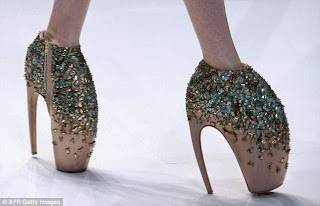When thinking about dreams it is important to look into subjects on what influences them in our subconscious mind. I looked up some articles about psychoanalysis and how certain phychiatrists defined it. Psychoanalysis was founded in 1896 by psychiatrist Sigmund Freud (though studies of psychology and the unconscious mind were already prevalent in the 19th century before Freud came along) who developed techniques of free association and dream interpretation. His theory of the human mind is now widely known, a system influenced by the conflict between three systems: the id (which strives for satisfaction), the ego (which wants to meet the needs of the id), and the superego (the moral and parental influence). I've read about Freud before and what I remember most is his theory on sexual desire, especially the Oedipus complex (named of course for the greek tragedy by Sophocles). I never really found myself connected to this theory, and don't really find a connection from these ideas to my concentration now. However, some of his research into the unconscious is really interesting. Freud called dreams the "royal road to the unconscious", meaning he felt that dreams illustrate the "logic" of the unconscious mind, just like I feel that dreams let me in on a bit of what's going on in my subconscious mind. One major thing the unconscious mind is known for is repression, meaning suppressing painful memories within the unconscious mind. In Freud's famous book "The Interpretation of Dreams", he explained that there is a psychological technique that makes it possible to interpret dreams and that all dreams reveal a psychological structure that are full of significance. He believed that dreams are forms of wish-fulfillment, that our subconscious is looking for some sort resolution to a conflict. Also, the dream imagery from the unconscious mind often needs a deeper interpretation, as it often appears as a disturbing or twisted form. I find that I am really drawn to this idea as I am exploring the world of dreams as an almost alternate reality, or the reality of our subconscious. I am interested in the fact that the dream images are often open for interpretation and don't always reveal their origin outright. I completely agree that dreams are maybe the best look inside of our subconscious mind and can tell us about our psyche and that's really the main area of what I'm exploring through my IP project. Maybe I should think more about my main subject as a look into the unconscious mind, and exploring what this means. I've also been particularly thinking about dreams focusing around emotions such as fear and stress, and what those dreams produce. I think these are both important paths for me to develop when thinking about my own psyche and my wearables.
I want to continue with the themes of beauty and pain and also consider new ones such as beauty repression or a morphing of the body into something surreal. For me the body and mind are not separate and through wearables I want to focus on the connection between the two. I think the mind actually is the more powerful of the two (body or mind), and rules us more than our physical being. Something I've really been exploring is the loss of control over the body, and of the mind, represented by dreams in particular, and a consuming of the body. When the mind takes over the body what happens? What do the dream images or emotions have to do with the overall control of the person? These sort of ideas fuel me to push my interpretation of dreams past the pretty imagery and more towards a twisted look into the inner psyche (or the road to the unconscious as found by Freud). I'm interested in the idea of the dream consuming or taking over in that alternate state of dream "reality" or what I suppose would be the subconscious or unconscious mind.
I'm constantly looking into fashion influences as like I showed in my presentation, I find Alexander McQueen's work as a great inspiration. I've always been drawn to what he creates and find his lack of conforming to the fashion norms, and following his own vision incredible. In a New York Times article posted today he is quoted as saying "I believe in depicting what's going on. I'm a big anarchist. I don't believe in religion, or in another human being wanting to govern over someone else. The themes that go through my shows will continue to." His marriage of tradition with avant-garde draws is something that interests me in my project as I try to find that balance between form, content, beauty, theatre, fashion, and art.
A fantasy antler look from his 2006 couture line.
He used spray painted cans in this look.
These shoes amaze me, I love how they completely transform the look of the foot into something surreal, twisted, and strange.



Hey June,
ReplyDeleteI'm glad you went back through Freud. It's important to have a basic understanding of his theories on dreams. Jung is another psychologist you should familiarize yourself with. Freud's approach is very subjective, while Jung is looking for universal symbols that we all use in our unconscious. They are both criticized for different reasons, but still very good to understand as precedents.
I think the idea of mind taking over the body is a good approach. During our last group meeting a lot of people wanted to see the clothes start to impose on the body of the wearer. I think you should really go with that and make the imposition make sense with the type of dream you are inspired by.
I'd like to see more sketches and in-process images on here, especially now that you guys are working on your own more and more.